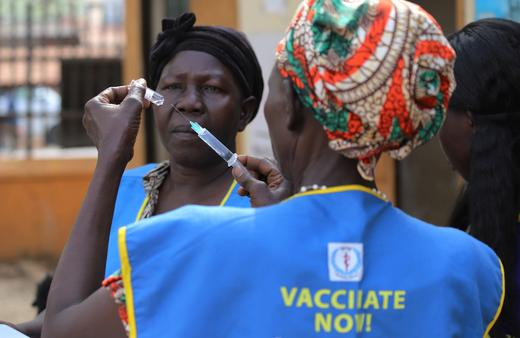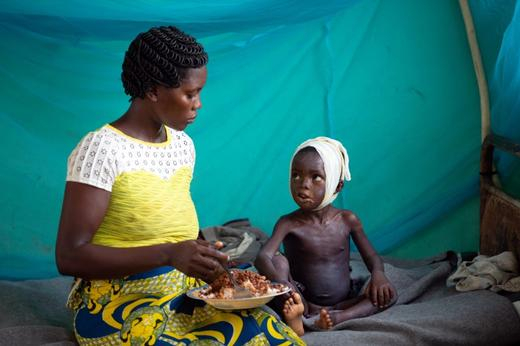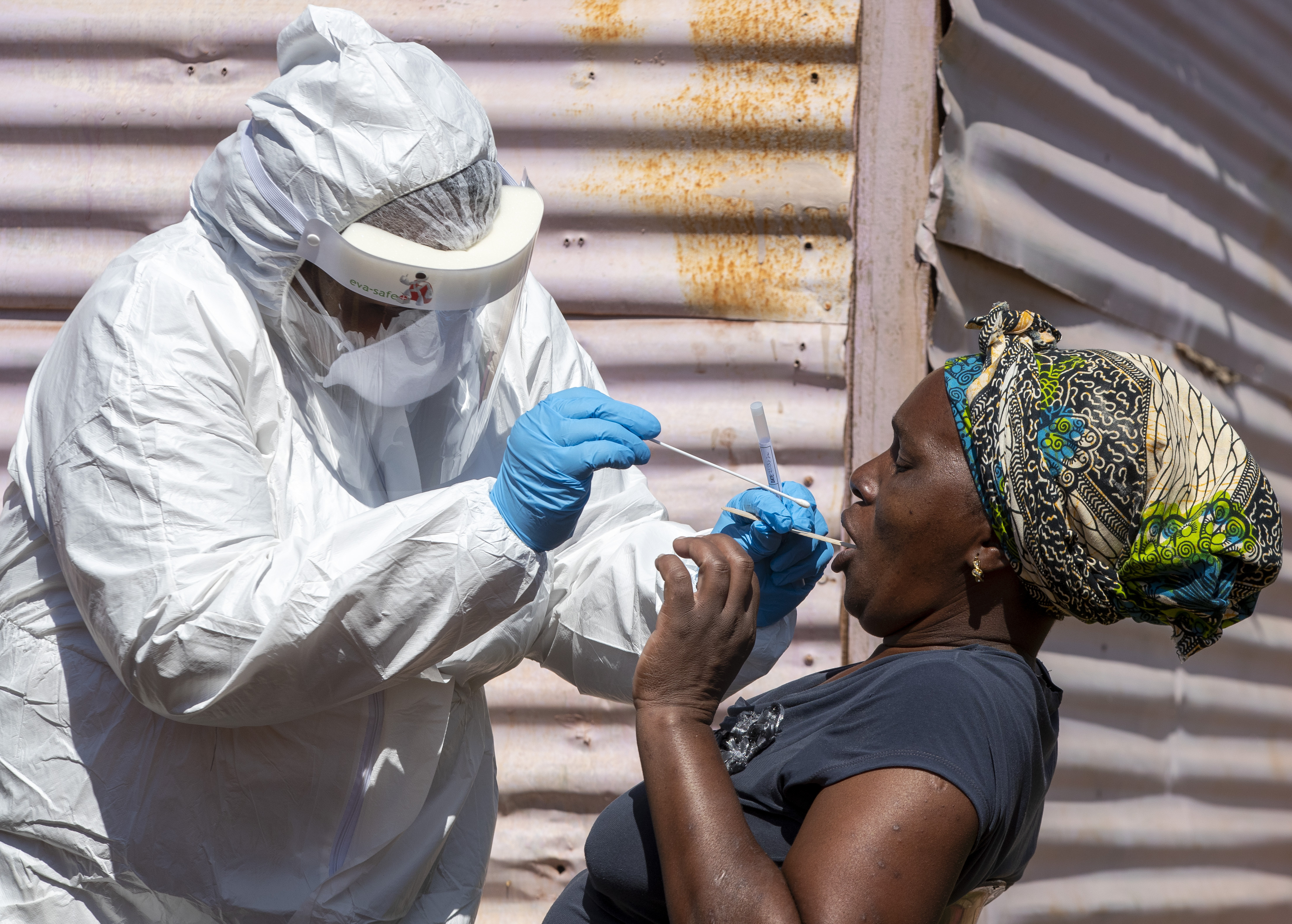
A child is given a measles vaccination during an emergency campaign in northern Democratic Republic of Congo, March 3, 2020. /Reuters
A child is given a measles vaccination during an emergency campaign in northern Democratic Republic of Congo, March 3, 2020. /Reuters
Editor's note: This is the 45th article in the COVID-19 Global Roundup series. Here is the previous one.
In the Democratic Republic of Congo (DRC), a virus has claimed the lives of over 6,300 children and infected hundreds of thousands of individuals. But it isn't the novel coronavirus. It is a disease that has been eliminated in many countries and can be prevented by vaccine: measles.
A safe and effective vaccine against measles has been available since 1963. But the ongoing coronavirus pandemic is hindering mass vaccination campaigns against measles, and other types of transmittable diseases in countries such as the DRC, Somalia, Syria, and South Sudan.
Such campaigns, mostly involving health workers going door-to-door and close interaction between health workers and children, may risk spreading the coronavirus. Measles immunization campaigns in 24 countries have already been delayed. Following the World Health Organization (WHO) guidelines, more will be postponed.
"One worry now is with lockdowns, with slowing down and health workers being distracted by COVID-19, we may see massive outbreaks of other infectious diseases that will completely overwhelm the health systems in addition to COVID-19," said Dr. Seth Berkeley, CEO of Global Alliance for Vaccines & Immunization (GAVI), at a webinar hosted by Gates Foundation last week.

South Sudanese health workers prepare to administer vaccination against measles to children during a campaign in South Sudan, February 4, 2020. /Reuters
South Sudanese health workers prepare to administer vaccination against measles to children during a campaign in South Sudan, February 4, 2020. /Reuters
Because of the contagious nature of the virus, 95 percent of a population needs to be fully immunized in order to prevent a measles outbreak, according to the WHO. But in the DPC, only 57 percent of children received a single dose of measles vaccines in 2018, and around the world, that figure stands at 86 percent, which means the likelihood of a measles outbreak is very real.
The disease, transmitted via droplets released from the nose, mouth, or throat of an infected person, carries risk of brain damage, blindness, and deafness. Children younger than 12 months are more likely to die with measles complications, according to Measles & Rubella Initiative.
Poor countries will be hit hardest if a multi-front health battle has to be fought. In 2018, the vast majority of the more than 140,000 global measles death were in sub-Saharan Africa. During the DRC's fight against Ebola, approximately twice as many people died from the measles outbreak as those died of Ebola.
Though measles and other types of transmittable diseases are now completely preventable, there are fears that as global demand for COVID-19 vaccine rises, it is going to divert manufacturing resources away from other routine vaccines, thus creating a shortfall in routine vaccine production.

A boy who has developed complications after contracting measles, has lunch with his mother in northern DRC, February 29, 2020. /Reuters
A boy who has developed complications after contracting measles, has lunch with his mother in northern DRC, February 29, 2020. /Reuters
For any vaccination to reach a sizeable scale of coverage, a stockpile of up to one billion doses are needed, said Li Yinuo, director of the China Program at the Bill & Melinda Gates Foundation, during the webinar discussion. By far, the only vaccination that has exceeded the one-billion threshold in production is the polio vaccines, she added.
"This is why we have to be global in our outlook in terms of what can be done because if we rely on any one country or region, we might end up in a situation where we have to make that devil's choice of producing vaccines that are life-saving and stopping that to produce other vaccines," said Berkley.
Globally, some countries still see new vaccine manufacturing plants being built, contract manufacturers being deployed, or innovations in vaccine manufacturing. For example, some vaccines can now be made in modular units and disposable units, which lessens the burden on global vaccine manufacturing infrastructure.
The overstretched health systems in poor countries are ill-equipped to cope with a multi-front health battle. Some vaccines require stringent temperature regime, e.g. around two to eight degrees Celsius for measles vaccines. In rural areas where paved roads are scare, it is hard to find cold-chain carriers, or even motorbikes to transport the vaccines from the city to the remote villages where vaccines are most needed.

Coronavirus testing, Johannesburg, South Africa, April 21, 2020. /Reuters
Coronavirus testing, Johannesburg, South Africa, April 21, 2020. /Reuters
According to a document shared by doctors at Al-Ribat National Hospital in the Sudanese capital, Khartoum, the country's healthcare system is already overburdened: fewer patients are admitted to emergency rooms, elective surgeries are indefinitely postponed, primary care is eliminated for noncritical cases, and skilled doctors are transferred to treat COVID-19 patients.
"People in less developed countries are particularly vulnerable to the epidemics," said Li from the Gates Foundation. "If we don't plan early, there is possibility for huge humanitarian disasters."
In the longer term, to strengthen the primary health care systems in low- and middle-income countries is key to increase their capacity to respond to epidemics. That includes building up health clinics, training healthcare workers, investing in disease surveillance system.
As countries in the Global South scramble to respond to competing priorities, it is important to realize that long-term investments into health care systems now holds the most potential of stopping this pandemic, and any future epidemic outbreak.
(With input from Reuters and AP)